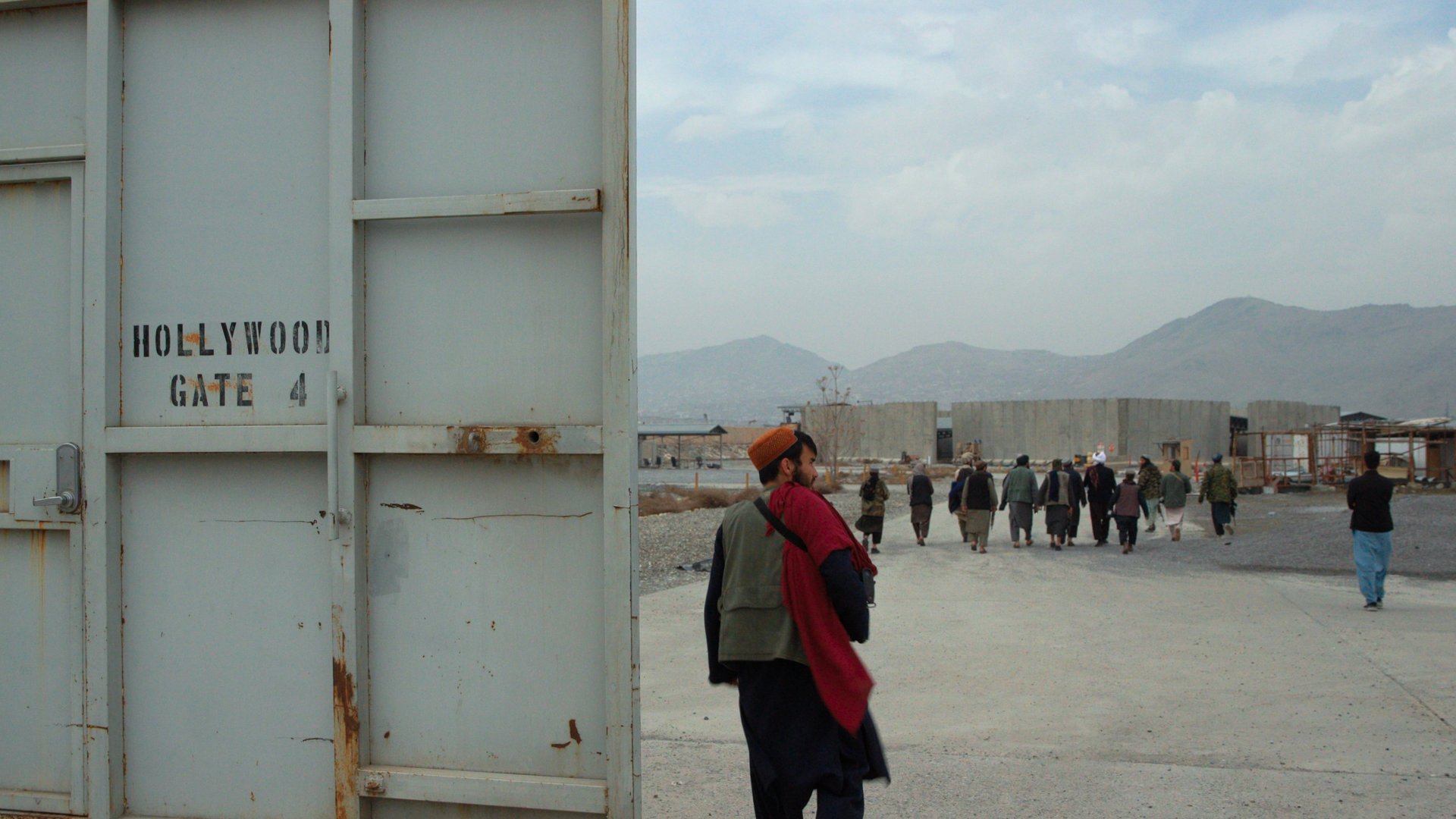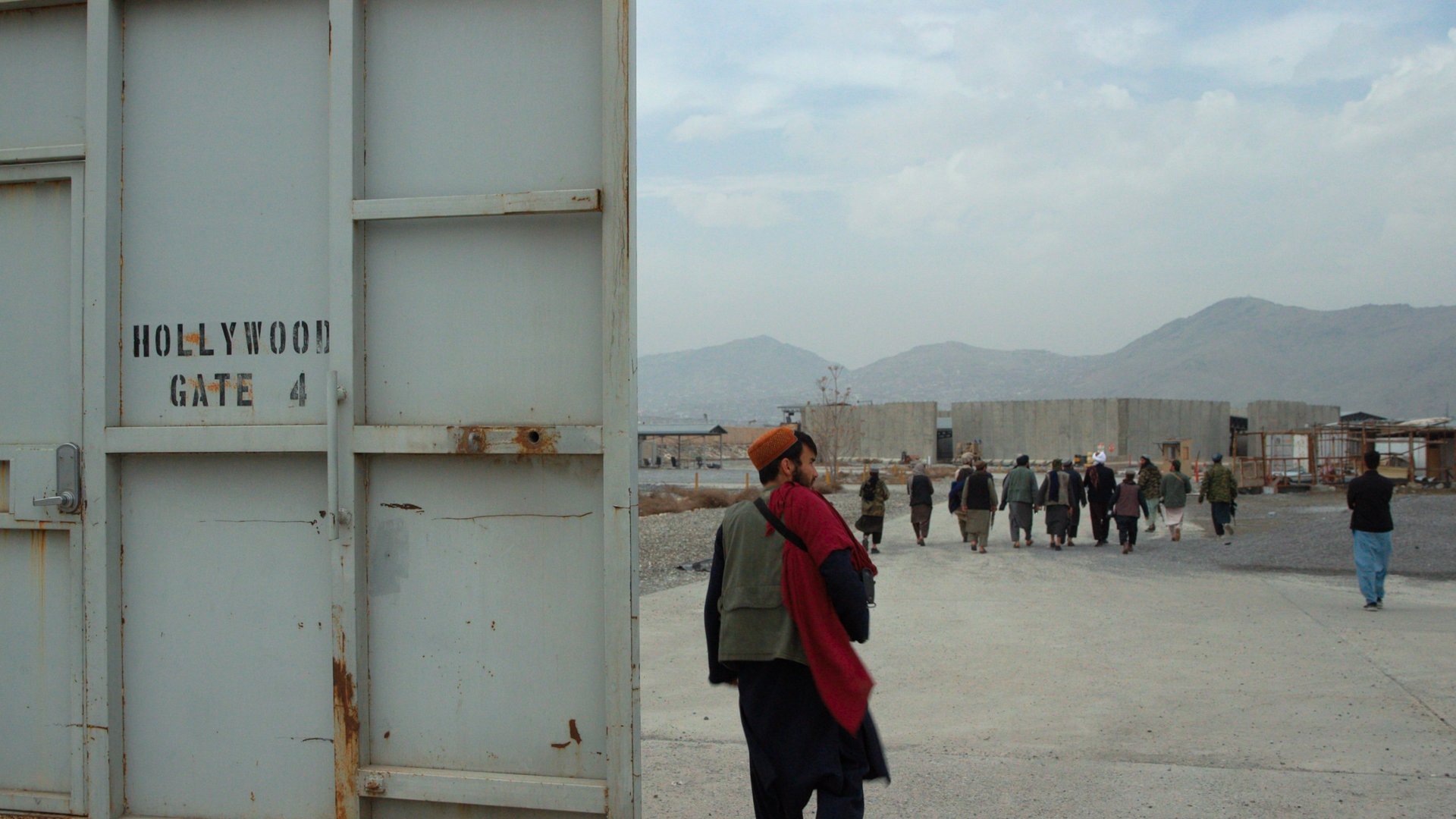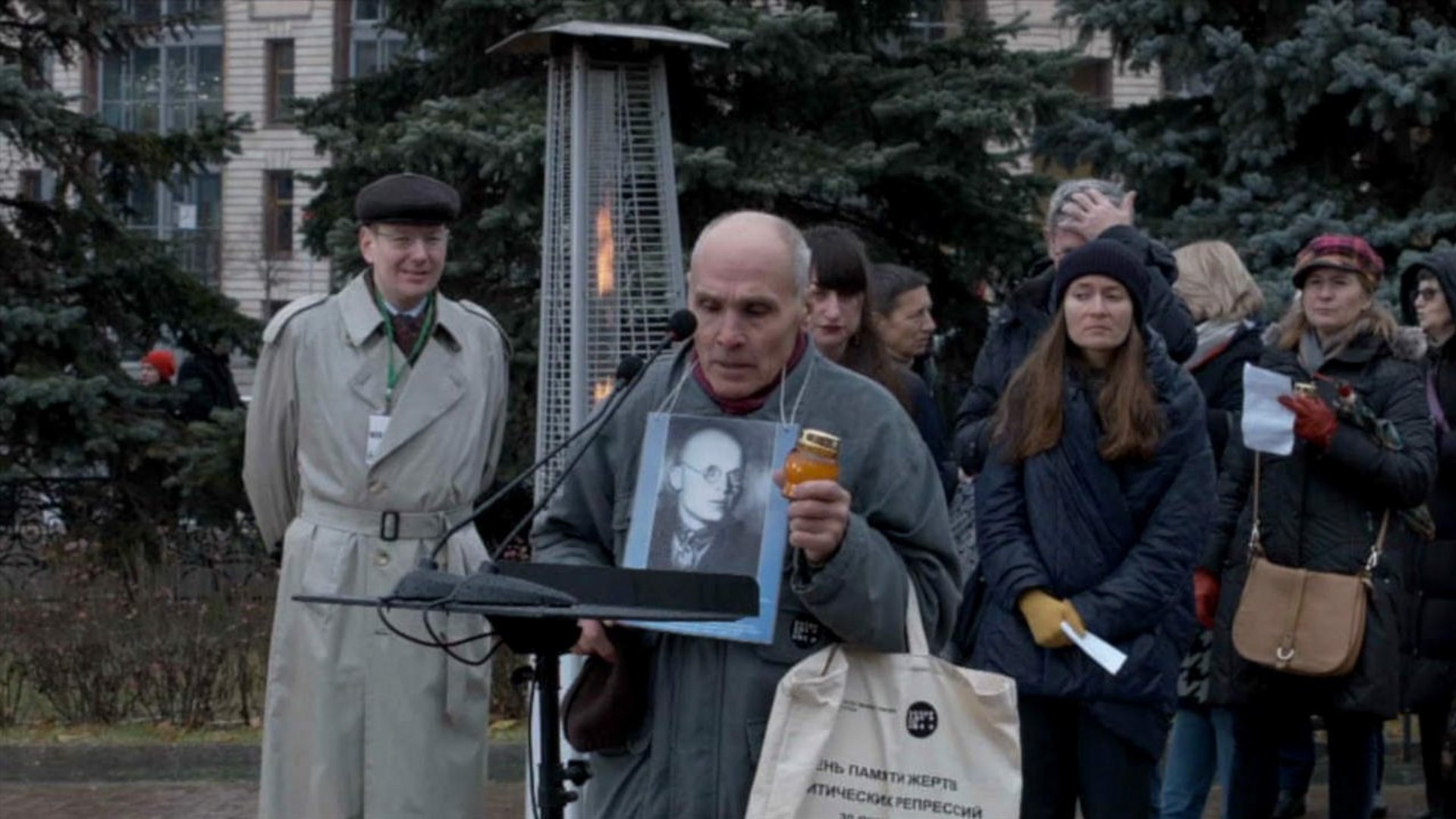

Our closing film, Hollywood Gate documents the brutal, unsettling reality in Afghanistan since the Taliban takeover. Directed by Berlin-based Ibrahim Nash’at, this gripping documentary will take you deep into the inner workings of the Taliban's new regime. After premiering in Venice last year, the film is now returning home to have its Berlin premiere at the Dokumentale.
The Guardian describes Hollywood Gate as a ‘chilling fly-on-the-wall glimpse of the Taliban’s takeover of Kabul,’ while Modern Times discusses ‘the irony of power’ it portrays. Nash’at had unprecedented access to the Taliban’s inner circle after the takeover, filming within the confines of a former US army base—ironically nicknamed ‘Hollywoodgate’. Despite significant restrictions, the film captures the disconnect between Kabul’s war-scarred civilians and the country’s war-obsessed Taliban leaders, making it a documentary not to be missed.
Director Ibrahim Nash'at joined us for an interview and told us more about the process of making the documentary.
The footage of people trying to get to Kabul airport in 2021, all of them wanting to leave the country, and the fear in their eyes sparked something within me. I saw the images of people clinging to aircraft trying to leave the country, hanging onto the aircraft and then falling down. That made me decide to go to Afghanistan. Because of my upbringing and because of the connections I have gathered working in journalism for ten years, I was able to find my way to the Taliban. Because I arrived there quite early on, we were able to get access to them.



Seeing the fear in the eyes of the people every single day. And the reminder that, if I left them, I would be exactly like the others who had claimed they were coming to their country to save them, but left them in an unbearable situation after twenty years of war. I did not want to be another person leaving the Afghans behind.
Hollywoodgate took us one year to shoot. I was there on my own with a very brave Afghan translator. His name is Adel Safi. Together, we were able to gain access and maintain that access. We always say that we were able to keep our access because of our persistence. It felt like I was Sisyphus and the access was my rock. I needed to push it very hard, all the way to the top, just to get a couple of days of permission. And then it would be taken away from me, and then I would have to try again. It kept going on and on like this, all the time, until the last day of shooting, when the Taliban’s secret service asked me to bring all my footage to their office the next day. I left the country that same day.
I think when we say ‘the Taliban’ we mean a group, but in reality, I was dealing with different kinds of people. Some of them were nicer than the others. Some of them were not nice. Some were very hospitable. Everyone was different. But what unites them is their ideology, which they would follow regardless of their own beliefs. Being among them, I understood that I am dealing with people who are impulsive because they are suffering from forty-two years of war, suffering from trauma. Going through that was not easy, but doing the movie was a choice. I decided to go to Afghanistan and make that choice. The Afghans never had a choice. They never decided to have the Taliban rule them for the last three years, nor did they get to choose whether the US and NATO would invade their country for twenty years. They didn’t get to decide whether the Soviet Union entered their country before that either. Or Britain before that, three times. So whatever I went through is nothing compared to the daily suffering of the Afghans.
When the US left Afghanistan, I arrived in Kabul and I got access to film the Taliban for one year, following their transition into a military regime. The story is told through the eyes of the main protagonist, Malawi Mansour. He was appointed as the head of the air force, and we follow him as he finds the weapons left behind by the US and tries to fix the weapons. We follow him as they discuss what they plan to do with these weapons.
What surprised me the most was that the Taliban are not who they claim to be with regard to their ideology. There is one line in the movie that did not leave my head: the younger lieutenant who I was following in the movie says, ‘I hope that the new law does not contradict sharia law,’ which means that this guy doesn’t even know what sharia law is.
I was surprised when I heard the Taliban listening to music. I saw them talking about women, relaxed, but when the camera was on, they would tighten up because they were afraid of their own leaders and their reactions. So they are preaching things they are not doing themselves.
The whole thing is about power. The Taliban are another regime that wants to seize power and be in a powerful leadership position. They seek power, and religion becomes just a tool in their hands to take control.
I hope that people understand that the twenty-year war mentality has failed and that we need to find a different solution, other than war, to solve the problems of the world because war begets war.
The Taliban not only inherited the weaponry that was left behind from the US; they also inherited the Hollywood-style propaganda that they are now imposing on their own people. What was imposed on them is being imposed on others, and that really makes the situation in Afghanistan much harder than it has ever been. The people in Afghanistan are still suffering today and no one is talking about them anymore.